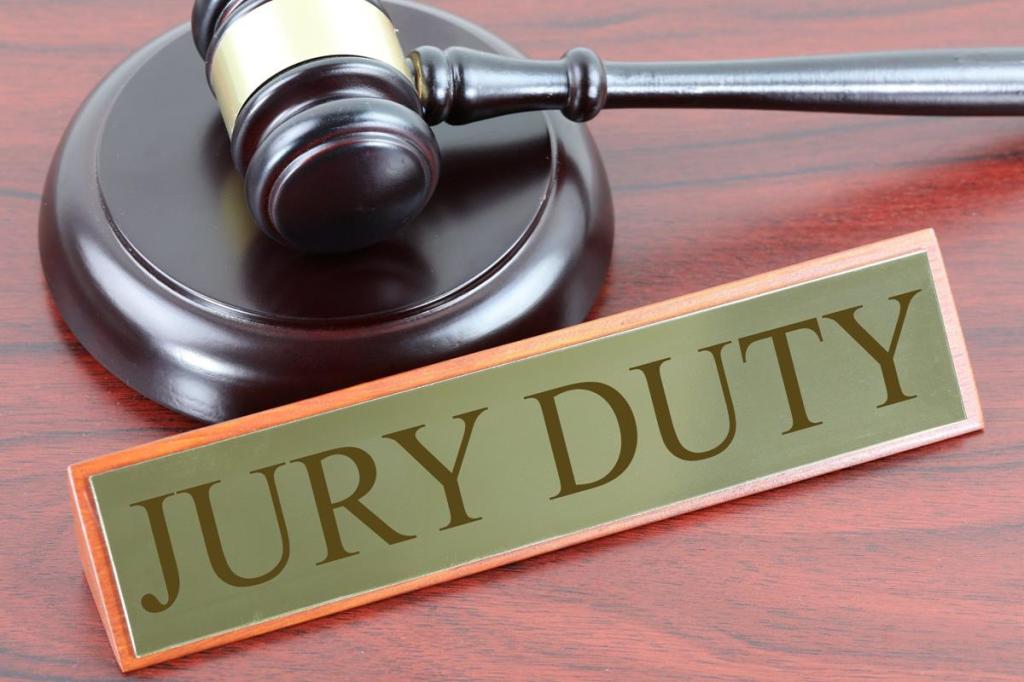Should Christians participate in jury duty? Jesus Christ gave us an example for this type of situation: “Someone in the crowd said to him, “Teacher, tell my brother to divide the inheritance with me.” Jesus replied, “Man, who appointed me a judge or an arbiter between you?” Then he said to them, “Watch out! Be on your guard against all kinds of greed; life does not consist in an abundance of possessions.” (Luke 12:13-14). He would not judge over man’s disputes. It is important to understand why Christ refused to judge these types of matters. He summed up the reason for this best when He said, “My kingdom is not of this world. If it were, my servants would fight to prevent my arrest by the Jewish leaders. But now my kingdom is from another place.” (John 18:36)
If we are truly ambassadors for Christ, then our kingdom is not of this world. “…our citizenship is in heaven. And we eagerly await a Savior from there, the Lord Jesus Christ,” (Philippians 3:20) Every man has sinned and therefore earned the penalty of death, a fact that man’s law ignores. (Romans 6:23) In addition, human laws do not take repentance into account; rather, juries must decide according to humanly devised standards. The spirit and intent of the law are frequently pushed aside for the letter of the law. We are to “forgive other people when they sin against you, your heavenly Father will also forgive you” (Matthew 6:14) and are explicitly not to condemn others. “Do not judge, or you too will be judged.” (Matthew 7:1). Those outside of the Church are to be judged by God, not by man. (1 Corinthians 5:13) The Church only decides matters within the Church. (1 Corinthians 6:1-5)
A Christian should respond to jury duty with a sense of reverence and humility, recognizing the grave responsibility that rests upon his or her shoulders. The future of another human being hinges upon the jury’s decision, and such power should not be taken lightly. A Christian serving on a jury should bathe every step of it in prayer, asking for wisdom to make a right decision. (James 1:5). The Christian juror can also look for opportunities to humbly mention the Lord to other jurors, demonstrate respect and kindness during the entire process, and model a positive attitude during the sometimes boring, tedious waiting times. When Christians view every situation as an opportunity to represent Jesus, even jury duty can have eternal significance for not only the ones on trial but also for those responsible for the verdict.
Bible believing Christians who cannot, for the sake of conscience, participate on a jury that could render a guilty verdict leading to a conviction, may find the idea of jury duty intimidating. However, the court is sensitive to such convictions, and neither judges nor lawyers want a juror who cannot vote his or her conscience. That person would most likely be excused during the lengthy selection process, which explores the backgrounds, convictions, and willingness of each potential juror.
United States legal precedent shows that you may be excused from jury duty for your religious convictions. If you tell the proper officials that your religious beliefs preclude your serving on a jury, you will probably be excused. It may be enough to write, “My religious convictions prevent me from serving and therefore I request to be excused,” on the jury notice. In addition, you may also wish to provide the necessary officials with these precedents from earlier cases. A church member provided the following citations in the 1980s, legal precedents that still stand today.
The Supreme Court for the State of Minnesota, held that a church member who had refused to serve on jury duty because of religious beliefs, was guilty of contempt for such refusal. The United States Supreme Court vacated (voided) the decision and remanded (returned) the case back to the Minnesota Supreme Court, which took its cue from the higher court, reversed itself, and held that the Church member would not be required to serve on a jury because of her religious convictions. The citations to the primary case are, In re Jenison, 375 U.S. 14, 84 S.Ct. 63, 11 L.ed.2d 39 (1963); and In re Jenison, 125 N.W.2d 588 (1963).
Two other cases which are in agreement with the Jenison case are State v. Everly, 146 S.E.2d 705 (1966) (by the Supreme Court of Appeals of West Virginia) and U.S. v. Hillyard, 52 Fed. Sup. 612 (1943, E.D.Wash).



